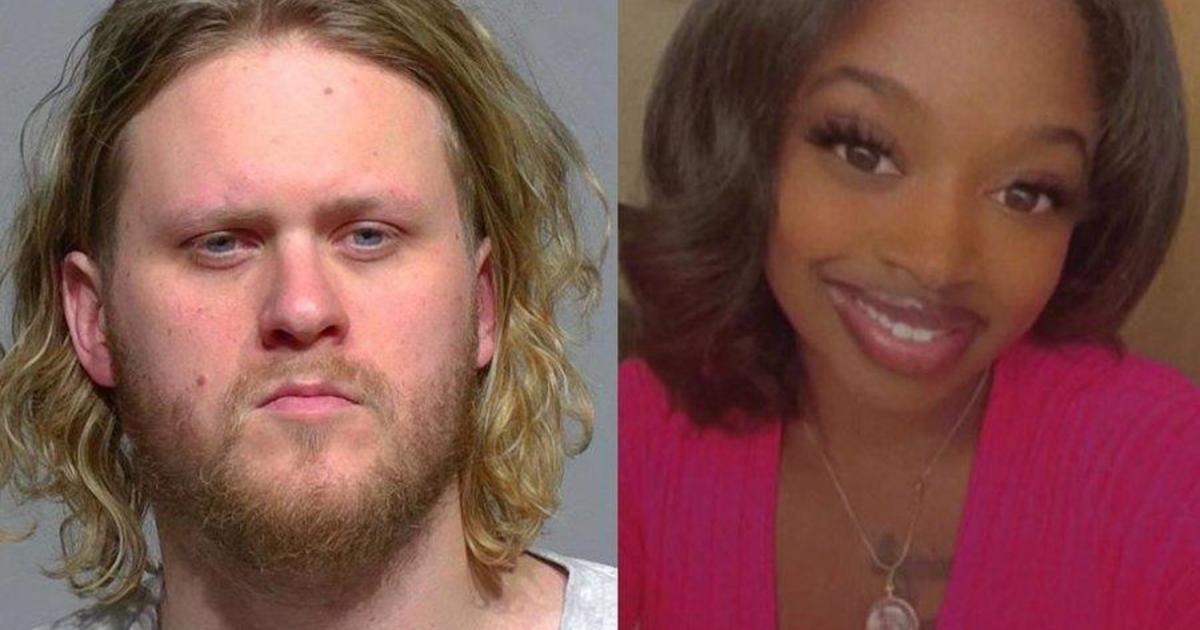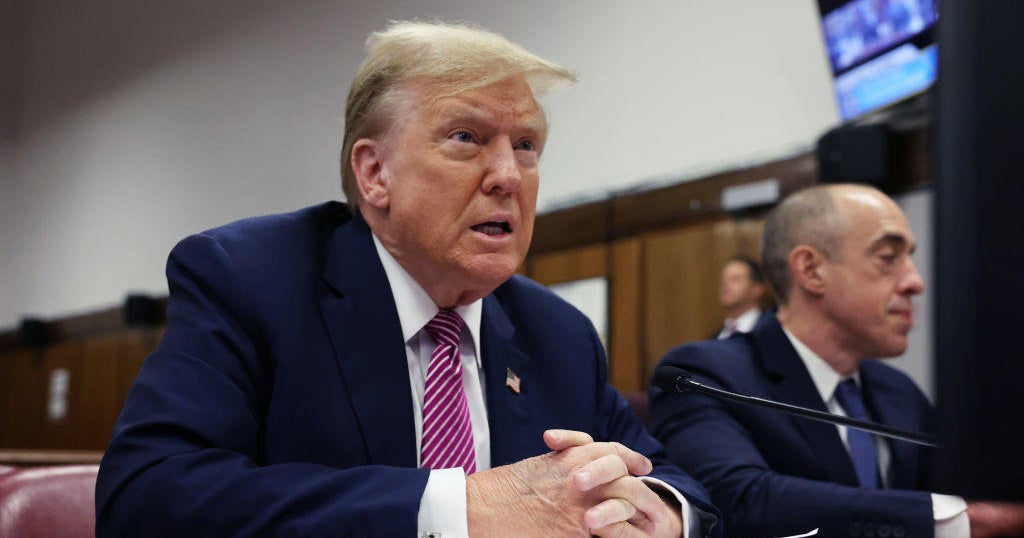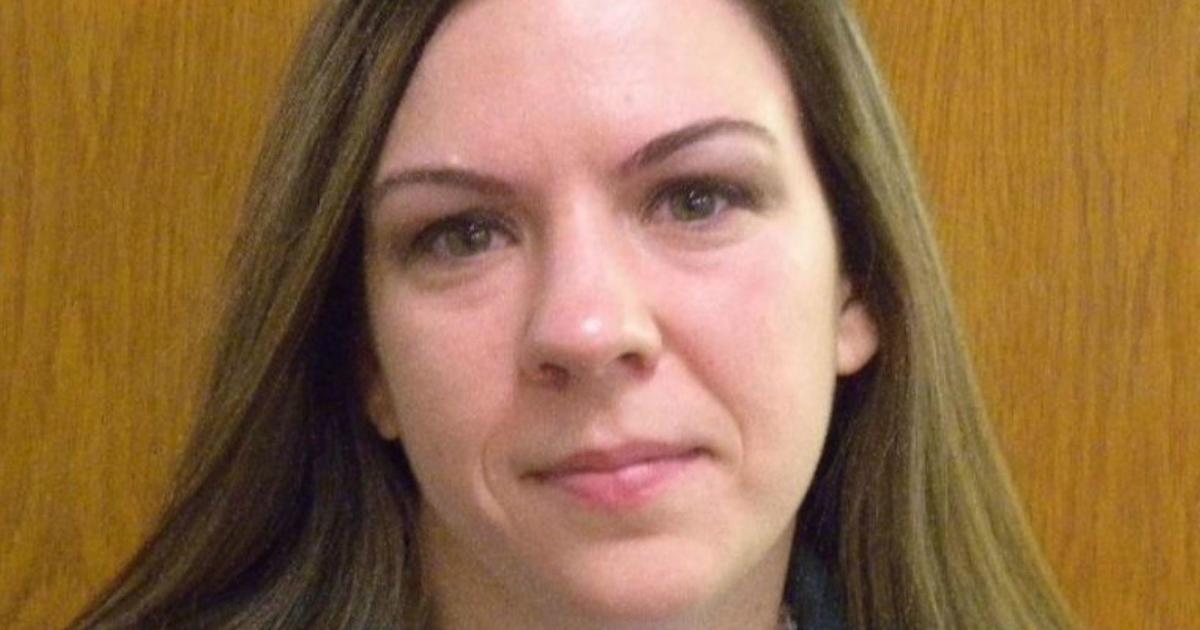Transcript: Anthony Fauci on "Face the Nation," January 24, 2021
The following is a transcript of an interview with Dr. Anthony Fauci, President Joe Biden's chief medical adviser, that aired Sunday, January 24, 2021, on "Face the Nation."
MARGARET BRENNAN: We begin with the president's chief medical advisor, Dr. Anthony Fauci. Good morning to you, Doctor. Good to have you back.
CHIEF MEDICAL ADVISOR TO PRESIDENT BIDEN DR. ANTHONY FAUCI: Good morning, MARGARET. Good to be with you.
MARGARET BRENNAN: Boris Johnson, the prime minister of the United Kingdom, said Friday the B111 strain that was first detected in the UK may be associated with a higher degree of mortality. The day prior you said it did not. So, which is it? Is it more deadly?
DR. FAUCI: Well, the data that came out was after they had been saying all along that it did not appear to be more deadly. So, that's where we got that information. But when the British investigators looked more closely at the death rate of a certain age group, they found that it was one to- per thousand we'll say, and then it went up to 1.3 per thousand in a certain group. So, that's a significant increase. So, the most recent data is in accord with what the Brits are saying. We want to look at the data ourselves, but we have every reason to believe them. They're a very competent group. So, we need to assume now that what it has been circulating dominantly in the UK does have a certain degree of increase in what we call virulence, namely the power of the virus to cause more damage, including death.
MARGARET BRENNAN: And that is projected to be the dominant strain here in the U.S. by March, according to the CDC. Your organization, the NIH, has just started testing to see if the existing vaccines prevent infection from some of these variants. What do we know about whether the vaccine works against B117 or B1351, which is coming out of South Africa?
DR. FAUCI: Well, there- there are actually two different ones. When you look at the effect of the change, this lineage that is the UK lineage that is now in at least 20 states in the United States. The vaccine induced antibodies, namely the vaccines that some of us have gotten and that we're rolling out, Moderna and Pfizer vaccines seem to continue to be protective against the mutant strain. It is a very minor diminution. But the cushion that you have of efficacy is so large that it's not going to negatively impact. A little bit more concerning with the South African isolate, namely the mutant that is now prevalent in South Africa, particularly its negative impact on some of the monoclonal antibodies that have been given for treatment, that it can, in some respects knocks out their efficacy. It looks like it does diminish more so the efficacy of the vaccine. But we're still within that cushion level of the vaccines being efficacious against these mutants. Having said that, MARGARET, we'll look at this and follow this very, very carefully because these things do evolve. And what we will do and are doing already is making preparations for the possibility that down the pipe, down the line, we may need to modify and upgrade the vaccines. We don't need to do that right now. The best way to prevent the further evolution of these mutants is to vaccinate as many people as possible with the vaccines that we have currently available to us.
MARGARET BRENNAN: OK.
DR. FAUCI: That's the best protection against this evolution.
MARGARET BRENNAN: I want to get to that in a second. But just to clarify, the Biden administration says in its new plan it wants to increase surveillance and sequencing of viruses, basically do more research to figure out what's actually swirling around in the population. Do we know for a fact that the South African, strain B1351, is not in the United States right now?
DR. FAUCI: I can't say definitively, MARGARET, that we know as a fact. What has been looked at thus far, it has not come up on any of the surveillance, but we need to expand greatly our genomic surveillance.
MARGARET BRENNAN: Yeah.
DR. FAUCI: We know that it had not been at the level that we would have liked. But there's a lot of movement right now at the CDC level, including some input from the NIH and other organizations to dramatically increase the what we call genomic surveillance.
MARGARET BRENNAN: So, we just don't- we don't know yet. On the vaccine--
DR. FAUCI: It is unlikely, but we can say definitively, yes.
MARGARET BRENNAN: Understood. On the vaccines you just drove home that point of how important it is to get this out there. I want to play some tape here for you and get you to clarify when US taxpayers can expect to get their vaccine.
ROLL CLIP
PRESIDENT JOE BIDEN: At least 100 million COVID vaccine shots into the arms of the American people in the 100 days. One hundred million shots in the first hundred days
END CLIP
ROLL CLIP
DR. FAUCI: You know, the goal that's been set, which I believe is entirely achievable, is to have a 100 million people vaccinated in the first 100 days.
TED KOPPEL: Both vaccines?
DR. FAUCI: Primary and boost, yes.
TED KOPPEL: Primary and boost?
DR. FAUCI: And boost, yes.
TED KOPPEL: In 100 days?
DR. FAUCI: Yes. Yes.
END CLIP
MARGARET BRENNAN: So, Doctor, in that exchange you seem to be promising a bit more than the president is. Can you just bottom line it? How many people will be fully vaccinated within 100 days?
DR. FAUCI: Yes, so- so let me clarify that, because there was a little bit of a misunderstanding. What we're talking about is 100 million shots in individuals. So, a shots- as in other words, when you get down to, let's say, a certain part of the 100 days, at the end of 100 days, you're going to have some people who will have gotten both shots and some will still be on their first shots. What the president is saying 100 million shots in the arms of people within 100 days.
MARGARET BRENNAN: So, reportedly the transition team projections are that, that's more like 67 million people by April, by the end--
DR. FAUCI: Right.
MARGARET BRENNAN: of 100 days.
DR. FAUCI: Right.
MARGARET BRENNAN: Is that an accurate number?
DR. FAUCI: Right. If- yeah. Yeah- that is- well, I haven't done the math myself--
MARGARET BRENNAN: OK
DR. FAUCI: --but it sounds very much like the accurate number where you're having people who will have gotten two doses and then some that are still on their first dose. When you add them all up and you look at shots, it's 100 million shots in the arms of people within the first 100 days.
MARGARET BRENNAN: OK, so the Trump administration's Health and Human Services Secretary said on this program in December that just with Pfizer and Moderna's vaccine, they could get to 100 million shots by the end of February. President Biden's goal puts that benchmark out in April. Are you deliberately setting expectations low?
DR. FAUCI: No, no, that's not the case, if you go back and look at the facts of actually what had been done in the first like 38 days, I believe that in the former administration, I think maybe two out of those days had reached 100 million. And the average along that period of time was about 450,000 per day. This is hard. Now what we've got to realize that although more recently there have been a couple of days where you've had a million, that has been predominantly in areas that are relatively easy from the standpoint of getting it done in a nursing home or in a situation in a hospital setting. If you look forward with the challenges that we'll be having getting it out into the community, that is not easily accessible, getting it to people that are not uniform in the sense of being health care providers or people in nursing homes, I still think that that challenge is really first of all, it's going to be a floor--
MARGARET BRENNAN: Yeah.
DR. FAUCI: -- not a ceiling. It's- it's not going to be easy to do that. I think there is this misperception out there, MARGARET, because we've hit one million a day for a couple of days that when we get out into the community, it's going to be really easy to do that. That's not the case. It is going to be a challenge. I think it was a reasonable goal that was set. We always want to do better than the goal you've set--
MARGARET BRENNAN: --Yeah.
DR. FAUCI: -- but it is really a floor and not a ceiling. The most important thing, the message that gets lost in this--
MARGARET BRENNAN: Right.
DR. FAUCI: --back and forth, MARGARET, is that we've got to vaccinate as many people as we possibly can as quickly as we possibly can.
MARGARET BRENNAN: Absolutely.
DR. FAUCI: And that's what President Biden made as the point. I mean, that was the--
MARGARET BRENNAN: I want--
DR. FAUCI: --major point that he was making.
MARGARET BRENNAN: Understood. And we just want to help clarify that. I want to ask you, as you know, we spoke to your former colleague, Dr. Birx, on Friday for this program. She laid out problems that, yes, were attached to President Trump, but go far beyond that, deep problems within that health care infrastructure of this country that will contribute to continued problems. Do you think there needs to be a 9/11 type commission to look at what went wrong?
DR. FAUCI: Well, I'm not you know, MARGARET, it's not up to me to say that. I think we really do. I mean, whether you want to call it a 9/11 commission, but we really need to look into some of the deficiencies in our health care systems at the local level. One of the things that I think I believe I had mentioned to you in a previous appearance here, MARGARET, that I felt we should do much better is a greater collaboration and coordination--
MARGARET BRENNAN: OK.
DR. FAUCI: --between the federal government and the local- the state.
MARGARET BRENNAN Yes.
DR. FAUCI: We've got to do that in a coordinated way. Instead of just telling the states--
MARGARET BRENNAN: Yeah.
DR. FAUCI: --you're on your own, do it on your own.
MARGARET BRENNAN: OK.
DR. FAUCI: That clearly does not work very well.
MARGARET BRENNAN: Dr. Fauci, thank you for joining us. We look forward to having you again. Up next, a candid interview with the former coordinator of President Trump's coronavirus task force.



